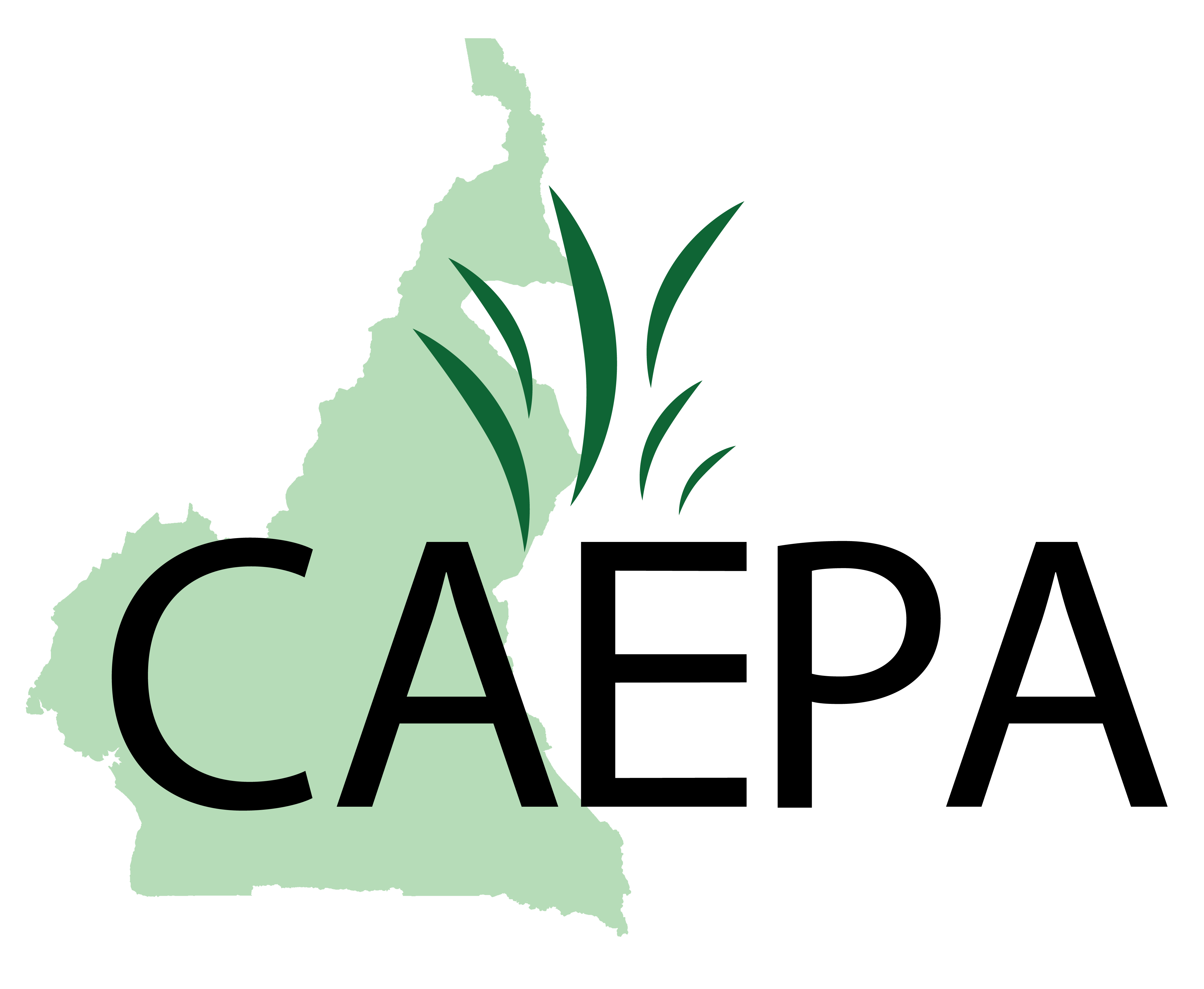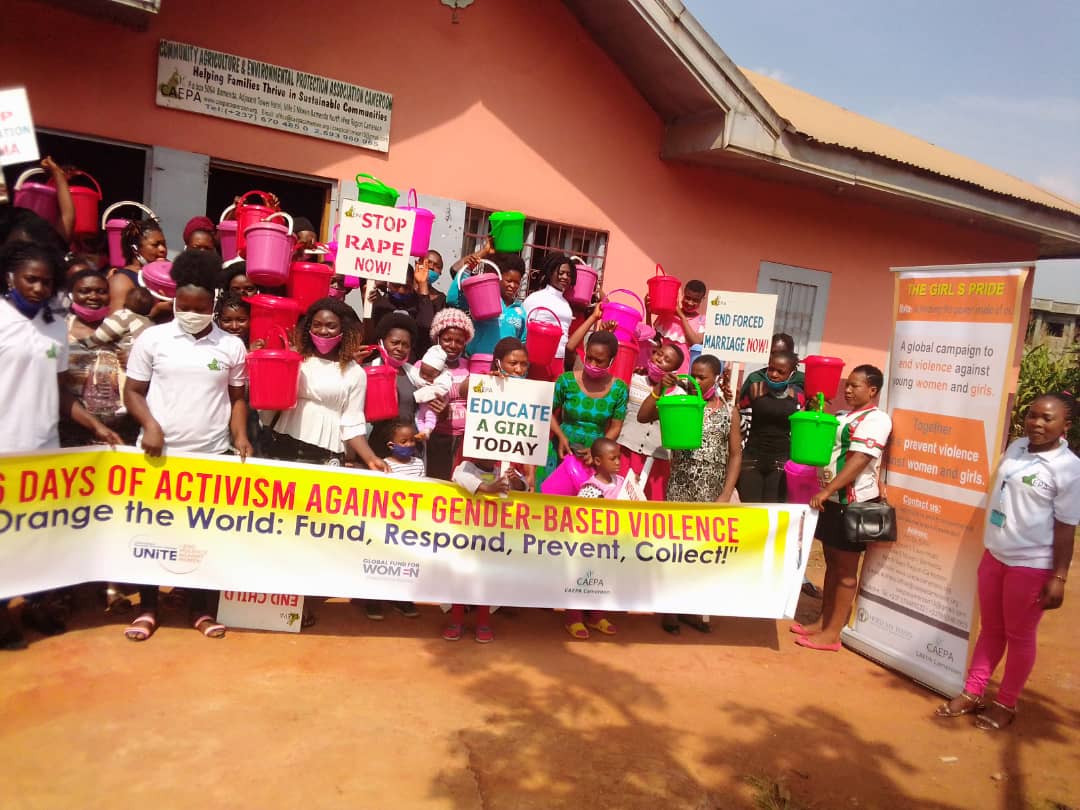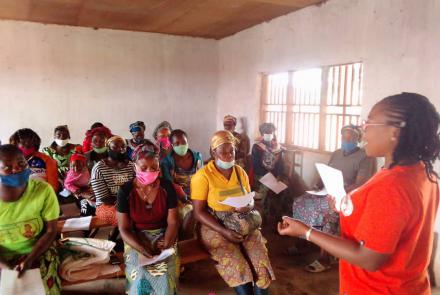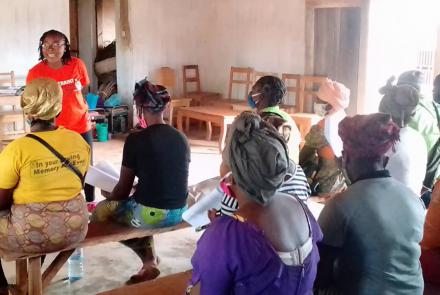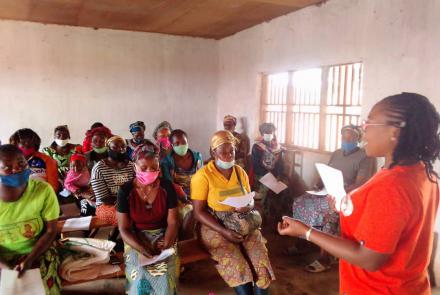Position paper by Women’s Rights Organisations to address gender-based violence against women during the COVID-19 lockdown and the Anglophone Crisis
Context and Definitions
The North West region of Cameroon had been 2017 in a state of chaos due to the Anglophone crisis which was worsened by the arrival of the COVID-19 pandemic. In this situation, thousands of women and girls are subject to gender-based violence (GBV) on a daily basis with rates of early marriages and forced prostitution rising alarmingly alongside the more common sexual and physical violence. GBV is generally defined as any harmful act perpetrated on a person due to gender norms imposed by society. It is often used to foster the cycle of unequal gender relations by controlling women’s and girls’ bodies and is, according to the World Health Organization (WHO), a public health problem of epidemic proportions and a fundamental violation of human rights. While it is recognized that GBV also includes violence against men and boys, it is crucial to realize that all violence against men and boys is not necessarily a direct product of gender discrimination and power imbalance that are deeply entrenched in the ways of life of Cameroonian people.
CAEPA’s strategy to eradicate GBV involves building synergy among different stakeholders that will enable us to advocate for and implement preventive measures against GBV faced by women and girls currently residing in the Bamenda I, II, and III sub-divisions and Balikumbat division (Cameroon). On a regional level, CAEPA has identified GBV as an issue that cuts across all core elements of a victim’s identity: demographics, health (sexual and reproductive), education, and economics. Intersections of gender, disability, age, and other key factors need to be fully explored from the project design stage and regularly monitored to ensure that our programs effectively address and respond to the complexity of the GBV issue. This requires an intersectional and multi-sectoral approach and therefore CAEPA prioritizes collaboration among women’s rights activists, women-led organizations, and stakeholders who are well-established in working on GBV.
Legal Frameworks
In 2012, Cameroon had ratified the Protocol to the African Charter on Human and Peoples' Rights on the Rights of Women in Africa (Maputo Protocol). Two years later, the government decided to ratify the Convention on the Elimination of All Forms of Violence Against Women (CEDAW) (The Advocates for Human Rights, n.d.). Meanwhile, several national laws have been put into place to address different forms of GBV against women, such as rape, sexual harassment, and genital mutilation. Nevertheless, GBV remains common due to the inefficacy of these laws and the inexperience of agencies who deliver them. It is clear that the government has not fulfilled its responsibility to protect its citizens and championed justice under all circumstances. Especially during emergencies like the COVID-19 pandemic, the government has also failed to protect women and girls undergoing violence.
The stance of Women’s Rights Organizations
Women’s Rights Organisations who are well established in the area of GBV have a unique insight into the issue and therefore unique positions. First, that families must be educated about existing patriarchal systems which control and subjugate women in order to justify violence against them and about how to challenge these prevailing power structures. Secondly, regional communities are responsible for creating more safe spaces for women and girls to empower them to speak up about GBV-related issues. This can be aided by collaborative programs between women’s rights organizations and the government which encourages men and young boys to challenge negative, toxic masculinity. Social organizations should also contribute to awareness campaigns enabling families, meeting groups, churches, etc. to learn about GBV, its causes, and consequences. Furthermore, survivors should be trained as case managers, empowering them as they reintegrate into society after going through traumatic experiences. At the heart of these preventative measures is the effective collaboration between CSOs and the Cameroonian government.
